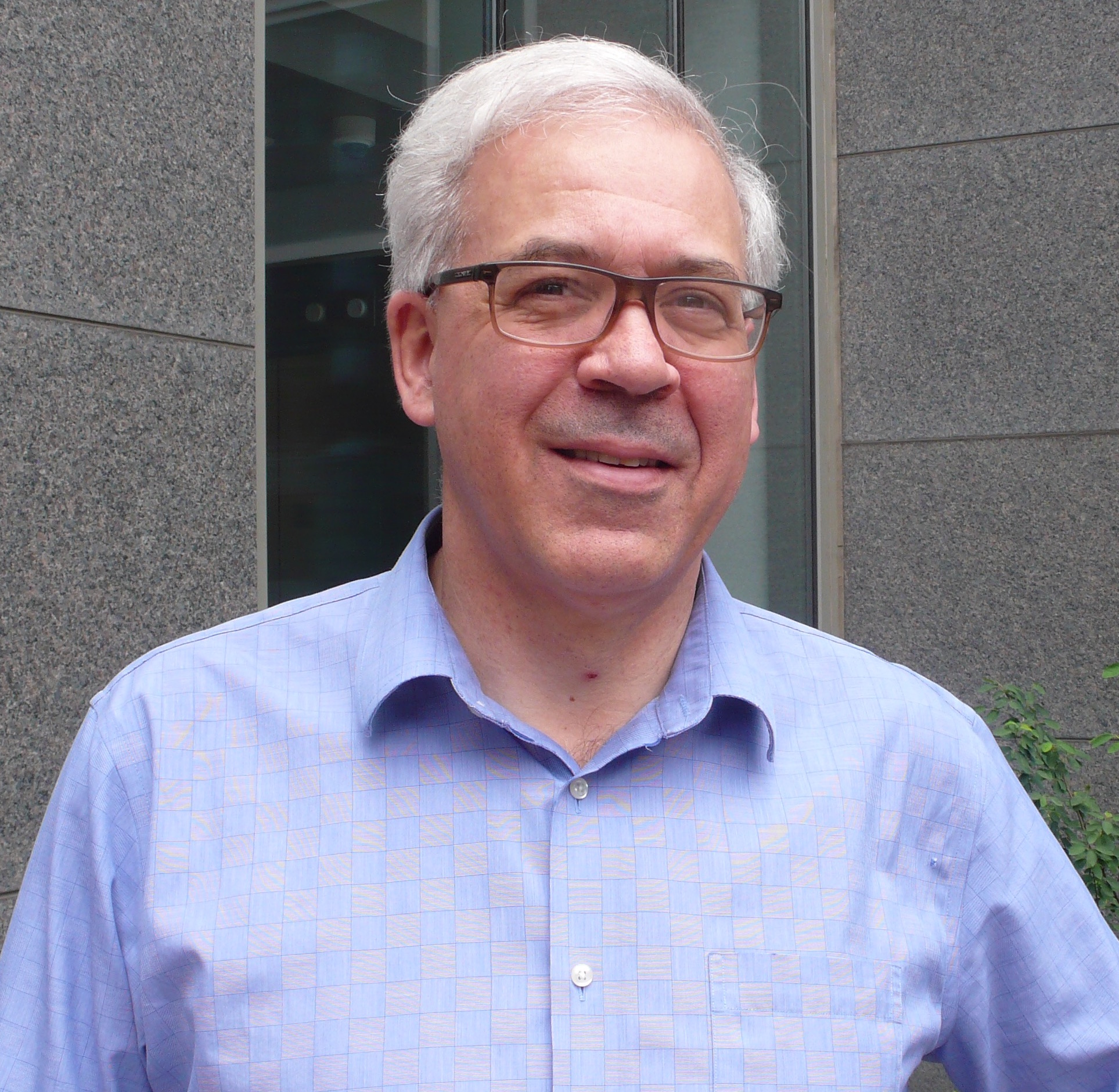
Andrew P. Hinck
This email address is being protected from spambots. You need JavaScript enabled to view it.
Phone (412) 648-8533
Fax (412) 648-9008
University of Pittsburgh
1035 Biomedical Science Tower 3
University of Pittsburgh
Andrew Hinck’s research is focused on using the tools of structural biology to understand how the structure and dynamics of biological macromolecules engenders them with their extraordinary ability to specifically and seletively bind relevant partners and assemble into functional complexes. In my laboratory, we rely heavily on NMR spectroscopy as a tool for studying the structure and dynamics of biological macromolecules, but we also use X-ray crystallography and other accompanying biophysical tools, such as isothermal titration calorimetry (ITC), surface plasmon resonance (SPR), and fluorescence spectroscopy. In addition, my laboratory employs cell-based studies to assess the significance of key molecular features we have identified in a cellular context. In my laboratory, a major area of emphasis is studying signaling proteins and receptors of the TGF-beta family, a highly diversified signaling family, with representative family members in both in invertebrates and vertebrates. In our research, we are interested in deciphering the molecular adaptations that the signaling proteins, single-pass transmembrane receptors, downstream effectors, and multitude of extracellular and intracellular modulators have acquired that enable the more than thirty proteins of family to achieve their unique biological functions. In addition, we are interested in exploiting the unique adaptations our structural studies uncovered to develop highly potent TGF-beta inhibitors for treatment of cancer or fibrosis. If you are interested in learning more my research and my research group, you can learn more by exploring the
Hinck laboratory website.
Undergraduate
University of Puget Sound, Tacoma, WA, USA
Magna Cum Laudem, 1987 in Chemistry
Postgraduate
University of Wisconsin, Madison, WI, USA
Ph.D., 1993 in Biochemistry, Advisor: John L. Markley
University of Wisconsin, Madison, WI, USA
NIH Ruth Kirchenstein Postdoctoral Fellow, Advisor: Laura L. Kiessling
National Institute of Dental Research, Bethesda, Md
NIH IRTA and Staff Fellow, Advisor: Dennis A. Torchia
Awards & Honors
2011 UT Health Sci. Ctr. San Antonio, Cancer Therapy Res. Ctr. Discovery of the Year Award
2011 U. Wisconsin-Madison, Dept of Biochemistry, Everson Lecturer
2008 Stanford Syn. Rad. Light Source Research Highlight
1994 NIH NRSA Kirchenstein Postdoctoral Fellowship
1993 U. Wisconsin-Madison, Dept. Biochemistry Sigrid Leirmo Memorial Award
1992 U. Wisconsin-Madison, Sigma Xi Outstanding Thesis Award
Representative Publications
Kim, S-K. K., Barron, L., Hinck, C. S., Petrunak, E. M., Cano, K. E., Thirangala, A., Iskra, B., Brothers, M., Vonberg, M., Leal, B., Richter, B., Kodali, R., Taylor, A. B., Du, S., Barnes, C. O., Sulea, T., Calero, G., Hart, P. J., Hart, M. J., Demeler, B., and Hinck, A. P. (2017) An engineered TGF-b monomer that functions as a dominant negative to block TGF-b signaling, J. Biol. Chem. (in press). PMID: 28228478
Villarreal, M. M., Kim, S-K., Barron, L., Kodali, R., Baardsnes, J., Hinck, C. S., Henen, M. A., Pakhomova, O., Mendoza, V., O’Connor-McCourt, M. D., Lafer, E. M., López-Casillas, F., and Hinck, A. P. (2016) Binding properties of the TGF-beta co-receptor betaglycan: proposed mechanism for potentiation of receptor complex assembly and signaling, Biochemistry, 55, 68800-6896. PMID: 27951653
Hinck A. P., Mueller, T. D., and Springer, T. A. (2016) Structural Biology and Evolution of the TGF-b family Cold Spring Harbor Perspectives in Biology, (in press). PMID: 27638177
Huang, T., Schor, S. L., Hinck, A. P., (2014) “Biological activity differences between TGF-β1 and TGF-β3 correlate with differences in the rigidity and arrangement of their component monomers” Biochemistry, 53, 5737-5749. PMID: 25204799
Huang, T., David, L., Mendoza, V., Yang, Y., Villarreal, M., De, K., Sun, L., Fang, X., López-Casillas, F., Wrana, J.L., and Hinck, A. P. (2011) “TGF-β signaling is mediated by two autonomously functioning TbRI:TbRII pairs”, EMBO J., 30, 1263-1276. PMID: 21423151.
Groppe, J., Hinck, C. S., Samavarchi-Tehrani, P., Zubieta, C., Schuermann, J., Taylor, A., Schwarz, P., Wrana, J., & Hinck, A. P. (2008) “Cooperative Assembly of TGF-β Superfamily Signaling Complexes is Mediated by Two Disparate Mechanisms and Distinct Modes of Receptor Binding”, Mol. Cell, 29, 157-168. PMID: 18243111
See also the preview by J. Massagué entitled “A very private TGF-β receptor embrace” (Mol. Cell, 29, 149-150) and research highlight by N. Gough in Science STKE (Science Signalling, 1, 46). PMID: 18243107
Active Grants
Inhibition of the tumor-promoting effects of TGF-beta in advanced prostate cancer
07/01/13-6/30/17
National Institutes of Health
RO1



